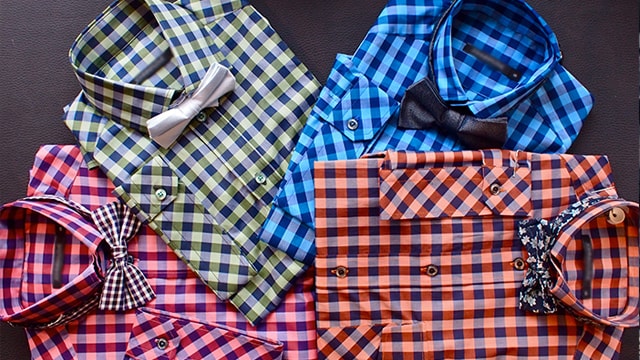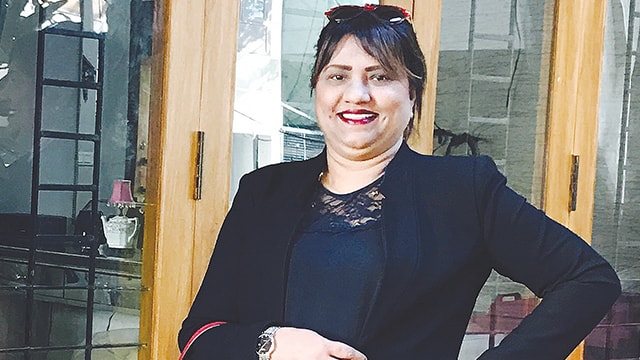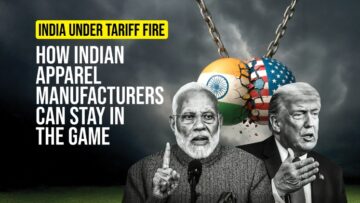
Cactus Clothing Company, a merchant exporter shipping to the US market, is based out of Bangalore. With offices in Bangladesh, UAE and China, the company has grown really well over the years. Currently doing an annual business of Rs. 160 crore, it is expecting to reach Rs. 200 crore in the current fiscal. Shirley Rohan, MD – India, who is going to complete 25 years with the company, shared the strengths and challenges of her company.
Working as a merchant exporter is indeed challenging as factories do not treat such clients on priority, and even the approach of the customers offering FOB is very casual who keep delaying the orders. Despite this, Cactus Clothing Company ships a container of nearly 1,25,000 pieces every week. Not only this, Shirley proudly claims that her company is the most competitive in Bangalore with regard to men’s printed poplin shirts. “We are very cost-conscious and have a strong production team. Fabric mills treat us like partners and we have an upper hand in fabric sourcing. Also, we have fixed CMT rates, irrespective of whether the market is up or down. All these things really work for us.” The company has great flexibility as it can source 2,000 or even 5,000 pieces a day, depending on its need.

Working with nearly 15 vendors on a regular basis and catering mainly to ‘Forever 21’, the company expects strong commitment and dedication from its vendors. “We feed the factories and continuously try to guide and support them. We do have problems with factories as they face various issues but there is constant follow-up from our side to deliver. We have created a team of dedicated people so that the system works smoothly,” adds Shirley. Having 8 people in the quality team has worked well for the company as they have not received any claims in the last 4 years from any of their buyers. The company has a track record of sourcing fabric from top mills even in 48 hours and dispatching complete shipment in 21 days.

These strengths give an upper hand to Cactus Clothing on delivery time, which is critical to business as Shirley stresses that its products’ shelf life in US is just 2 to 3 weeks or sometimes it gets replenished even before. It takes 7 to 10 days for completing the design aspect of a shirt and once the design is done, it takes 2 to 3 weeks for approval and production. “FOB convertors take at least 75 days while we do it all in maximum 35-40 days,” she avers and adds, “Being point openers and catering mainly to discounted stores, our approach to get orders and execute them well in time is a game that we have mastered.”
“Working for a single company for the last 24 years that too in CMT business, and holding the office and staff together in this changing scenario is a big achievement. We are also adding strong designs, and branding appeal to our shirts. What I am today makes me proud. The products we do keeps me very young and it’s all about the mind over matter.” – Shirley, MD – India, Cactus Clothing Company
Thus, Shirley rightfully states, “Buying and shipping, rather than being seasonal, are regular features for our company.” She explains how the basket of orders opens in New York at 4 O’clock in the morning and by 6 O’clock, it is taken. So one has to be very quick to take decision about picking up the order. Assisted by an immensely dedicated business head, there is never a ‘no’ to any development at Cactus. Besides, a massive set-up and a strong team for designing and branding enhance the brand value of the company’s products. Hanger appeal is no more its priority as the company comes up with more than 2,000 samples every month.
Being a menswear company, Cactus in India focuses mainly on shirts which it is producing from day one. It also does a little bit of other products like shorts and trousers. Besides, it sources a good number of knitted products from Ludhiana and Tirupur, but on FOB. The company has a team strength of 60 people in Bangalore and 10 people in its Tirupur office.
Strategically, the company does not try products which are Bangladesh’s strength, but prefers to stick to its core strength, which is printed poplin shirts. The company is also exploring the local retail market in India, as well as planning to get into Vietnam to start sourcing of outerwear. “With the expertise we have, I firmly believe we should go for local retail. We will see whether the products in this domain will be similar to what we are doing now or the market demands something else,” concludes Shirley on a futuristic note.






